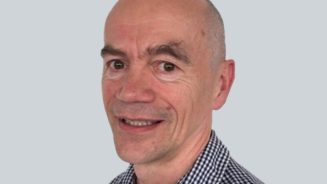Ian Pryor is waiting in the reception of IPP’s office in the swish business district of Singapore when I arrive to meet him.
Having previously noted his classic English accent on the phone, I had not factored in his Asian parentage or relative youth – he is 29 – as a managing partner. He says he “likes to surprise people” in this way.
Pryor also had to make a surprising exit from the business he worked at when he first arrived in Singapore. This was from late 2006 to early spring 2008 after Nigel Green of deVere had interviewed him at Heathrow airport for a job which turned out to be as a coordinator doing telemarketing activities for Inter-Alliance International in Singapore (IAIS), a deVere company.
Rise and fall
IAIS ceased conducting any financial advisory services in February 2008, following the Monetary Authority of Singapore’s (MAS) discovery of various contraventions of its rules.
The official statement puts it this way: “The CEO of IAIS, Robin Deal, had allowed IAIS and its representatives to sell the life products of unregistered insurers to clients in Singapore without seeking the Monetary Authority of Singapore’s prior approval.”
“I saw the rise and fall of deVere in Singapore, and I locked the door of the offices with Deal in Singapore,” Pryor says.
Pryor had a challenging interlude period before he found IPP. He did not even know about IPP before the opportunity came along and he was surprised to find what a substantial business it was.
However, when he landed his current role as co-founder and managing partner of Expat Advisory Group (EAG), a specialist division of IPP Financial Advisers, it propelled his career into a new dimension and it is appropriate we are talking about this in IPP’s top-floor meeting room.
The penthouse-like room has a huge roof terrace looking out to sea with a sweep of coastline and a view of Sentosa island. This is a long way from his roots in Elstree, Hertfordshire, where he was educated at Haberdashers’ Aske’s Boys School. His aunt, who was in fund management, helped him with an introduction that landed him a junior broker role at Hoodless Brennan.
After his initial foray into Asia, EAG was established in April 2008 by Pryor with Roger Tunstill and Michael Wong.
Local market
Over 95% of the circa 700 clients in EAG are expatriates and Pryor says the rest of the IPP group almost exclusively cater for the local market. EAG’s clients are looked after by 26 advisers, which is small in the context of the 400 in IPP as a whole with its S$2.3bn assets under advice.
But the expat clients cut above their weight as the huge majority are ‘accredited investors’ with income upwards of S$300,000 in the preceding 12 months or net worth of S$2m or more. This is a MAS-defined term, where funds are registered with the regulator as ‘AI-Restricted’ in similar vein to professional investor status in Hong Kong or sophisticated investor status in the UK.
Pryor says last year’s figures showed there was a good product mix in client portfolios, and persistency for EAG was over 90% across all insurance companies. Though a holistic approach is taken to financial planning, the biggest focus of the business is on private pensions and investments.
Vital knowledge
“Many clients are financially knowledgeable. However, I can still help them with implementation, ideas, and monitoring. Ultimately, they are short of time, not knowledge or data.”
He gives an example where he advised “a successful couple”, who kept a lot of cash in the bank.
“In a negative real interest rate environment, that is not prudent financial planning. 12-month fixed deposits in Singapore yield under 1%, even with a million dollars in play. Inflation is very high in Asia too! The Consumer Price Index in April was up to 5.4%, but as someone who has lived in Singapore for six years now, I can say for sure that the cost of living has more than doubled in that time.”
This led to his recommendation for a personalised Portfolio Bond for its open architecture and potential tax planning features. The investment proposition centres around what Pryor describes as a “very competent investment division comprising around ten full-time staff who do nothing but look at the markets and economic data, provide stats and papers for our own education as well as for clients, and much time is spent on fund due diligence”.
Model portfolios are available if required, and have an asset allocation oversight on two fund of funds run specifically to EAG’s mandate, retail registered in Singapore, one managed by Phillip Capital and the other by CIBC Capital Markets.
Accredited investor investments make up a significant proportion of assets under advice. “The most popular funds we use have been in the managed futures, emerging market debt, local currency debt, and recently UK student accommodation sectors. We also have significant assets in equity funds, with a large weighting in favour of Asia and emerging markets,” he says.
Product providers
In terms of product providers, most of EAG’s business goes to Zurich International Life, Skandia International, Friends Provident International, Generali International, and Aviva.
“We cannot use RL360, Standard Life or many others as we are restricted to life companies regulated by the MAS in Singapore. IPPFA as a whole has over 100 different products from various providers in our client holdings.”
As for remuneration, Pryor uses indemnified commission “for a lot of what we do” and he points out that upfront payments are an important help with start-up companies.
He says he will review the way IPP advisers are remunerated when MAS decides on its position here, whether that be imposing a fees only environment or not.
However, he has implemented charging structures that utilise a commission sacrifice but have an increased trail fee, or annual management charge attached.
Strict policy
He accepts that indemnified commission is open to potential abuse. In contrast, he points to IPP’s “very strict recruitment policy, lots of training, high levels of compliance, and a good culture.”
He also explains how EAG has what he calls a gross revenue system in place, which he believes is “the most transparent remuneration system I have come across in offshore financial services.”
All commission and any overriders and bonuses EAG might get from providers are put together and paid out to the consultant according to their commission tier. All trailer fees, received from life companies and fund houses alike, and renewals on all insurance policies are included.
“We took a decision when we set up EAG four years ago to work in this way, and while we have certainly missed out on some revenue as a result of sharing too much, it helps create an honest and open environment.”
On the qualifications front, Pryor is already well tuned in with the MAS stance in its consultation paper. He has an interesting blend of exams from three different countries, namely Singapore, Hong Kong and the UK.
To advise in the areas EAG currently works within, EAG advisers have been required by the regulator to take four exams from the Singapore College of Insurance. But for a new consultant starting today, the bar has already lifted, and there is a deadline for all existing consultants to get six exams under their belts.
“From experience and talking to industry members across the world, it seems the quality of advisers in Singapore is already one of the highest offshore, but improving it further is only ever going to be a good thing,” he says.
Climbing ever on
Pryor was about to come under new ownership until the planned sale of IPP to Convoy Financial Services fell through earlier this year. He recalls being impressed by the Convoy headquarters in Hong Kong.
So the business plan will go ahead independently for now, including the development of ongoing advisory fees.
“We are relatively well prepared, but I also do not think there will be zero commission any time soon. Any major industry change would take years.”
A climber in his spare time, Pryor reached the top of Mount Kinabalu, in Malaysia (see photo), and climbed Helvellyn in the Lake District, England’s third-highest point, earlier this year.
Next up is Mount Fuji at the end of July, which in turn is training for Mount Kilimanjaro, a climb planned for later in the year, which he is doing for charity.
“My family has recently been part of establishing a non-profit organisation, The Pryor Foundation, which will support various charities, but in particular focuses on enriching the lives of children, mainly in Singapore and the UK, and predominantly disabled children.”
His sister, whose 21st birthday he is returning to London for in July, is mentally and physically handicapped. “She is obvious inspiration for the forming of the foundation, as well as one of the driving factors behind my work ethic and general determination in life.”




